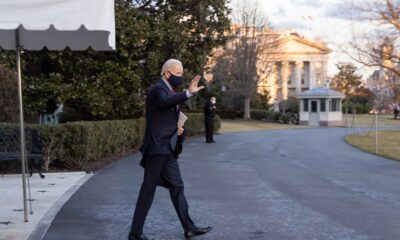Constitution
Health care reform bill opposition brief

The two New Jersey activists suing against the health care reform bill replied today after the government finally answered their appeal.
Nicholas E. Purpura of Wall Township, and Donald R. Laster of West Long Branch, started working on their brief as soon as they saw that they had something to reply to. They also filed another motion asking the Third Circuit Court of Appeals to sit en banc and hear oral argument.
Latest health care reform bill lawsuit action

The James A. Byrne Federal Courthouse, Philadelphia, PA, home of the Third Circuit Court of Appeals. More than one health care reform bill case is on appeal here. Photo: US Department of Justice
The case of Purpura v. Sebelius is on appeal before the Third Circuit on the issue of standing. Standing means: do these two men, and the 600-plus persons and groups that have signed on to the case, have any right to sue the government over the health care reform bill?
The other judicial circuits now seem split on this issue. The Ninth Circuit recently held (Baldwin v. Sebelius) that two plaintiffs in one of the first such lawsuits lacked standing. But the Eleventh Circuit held last Friday that not only did the plaintiffs in a case before them (an individual and 26 States) have standing, but also that they prevailed on the merits.
Nevertheless, the Department of Justice argued, in twenty-seven pages, that Purpura and Laster did not have standing. They used the same argument that they had used before the District Court. Briefly they said that the plaintiffs did not show how complying with the “individual mandate” would cause them serious financial or other hardship. In fact they suggested that the government would likely subsidize their health care anyway.
They said not a word about other, more serious harms that the suit mentions. For one thing, the law might subject their medical records to unreasonable searches and seizures without a warrant. For another, their brief fails to acknowledge any of the co-plaintiffs, or how their circumstances might grant them standing by their own definition. (Not all the co-plaintiffs are eligible for Medicare, VA benefits, etc.)
The plaintiffs reply
In their reply, Purpura and Laster examine several cases that the government cites, and find that those cases support the plaintiffs, not the government. (Ironically, those cases include Thomas More Law Center v. Obama. Though the plaintiff in that case did not prevail, the Sixth Circuit said that the plaintiff had standing and that the case was ripe.)
With regard to whether they do, or do not, qualify for some government subsidy or other, Purpura and Laster say:
Having or not having insurance is not the issue. Being forced to purchase a product is an issue as are the other 18 specific violations of the U.S Constitution ignored by the District Court in its fabricated “standing” dismissal argument.
In this regard, the language of the Eleventh Circuit’s ruling against the health care reform bill is especially pointed:
The government’s position amounts to an argument that the mere fact of an individual’s existence substantially affects interstate commerce, and therefore Congress may regulate them at every point of their life. This theory affords no limiting principles in which to confine Congress’s enumerated power.
And yet, in this case, the government argues that the mere fact that a person is subject to a given law does not grant him standing to challenge that law. Justice Antonin Scalia has written otherwise.
Oral argument motion
Purpura and Laster have never had the chance to state their case in person before a judge or judges. They filed a motion for oral argument the day before the government’s reply brief showed up. The main issue that they want the court to address: can any judge, who owes his spot on the court to Barack H. Obama, properly judge a case whose outcome might declare that Obama is not the President of the United States? Such an outcome would put Judges Joseph Greenaway and Thomas Vanaskie out of their jobs on the Third Circuit. Therefore, say Purpura and Laster, they should not hear this case or any part of it.
Judge Greenaway is part of the three-judge panel assigned to hear the case. Judge Vanaskie is not—but he earlier issued an order saying that he would not disqualify himself. That order included a panel number that has no connection with this case.
Summary
This case involves more than just the health care reform bill. The part that does involve the health care reform bill is bad enough. The bill originated in the wrong house of Congress (the Senate). It levies a whole host of capitation taxes (not just the individual mandate) without apportionment. It has already put certain businesses out of business (including the very ones that the government likes to make fun of the plaintiffs for citing). And it will subject private medical records to unreasonable and warrantless searches and seizures.
But this case also involves whether Barack H. Obama legitimately holds office or not. As such it affects everything he has done, and every judicial appointment he has made.
The problem: if Purpura and Laster have standing, the District Court would then have no choice but to grant a default judgment in favor of the plaintiffs on the very count that raises this issue. The reason: the government never once answered it. And no, neither the law nor the Federal Rules of Civil Procedure recognize any such thing as “an argument so stupid that it does not deserve the dignity of a response.” Any argument that a defendant does not answer automatically carries the day.
Purpura and Laster separately told your editor something else, regarding the Florida case that the Eleventh Circuit decided. The Eleventh Circuit did rule that the individual mandate is unconstitutional. But it severed that question from the rest of the health care reform bill, this although that bill has no severability clause. That, says Purpura, is why they are pressing their case: to make sure that the health care reform bill goes down, no matter how “severable” any judge tries to find it.
Featured image: the US Constitution. Photo: National Archives
Related:
- Revised motion
- Legal confusion
- Frustration
- More motions
- Recusal motion
- Default motion
- Appeal skirmish
- Commerce, health care, and distortion
- Plaintiffs seek injunction
- Appeal delayed
- Plaintiffs have standing after all
- DOJ wants more time on HCR appeal
- Another appeal
- Hazardous to your health
- Court dismissal
[amazon_carousel widget_type=”ASINList” width=”500″ height=”250″ title=”” market_place=”US” shuffle_products=”True” show_border=”False” asin=”B00375LOEG, 0451947673, 0800733940, 0062073303, 1595230734, 1936218003, 0981559662, 1935071874, 1932172378″ /]
Terry A. Hurlbut has been a student of politics, philosophy, and science for more than 35 years. He is a graduate of Yale College and has served as a physician-level laboratory administrator in a 250-bed community hospital. He also is a serious student of the Bible, is conversant in its two primary original languages, and has followed the creation-science movement closely since 1993.
-

 Executive4 days ago
Executive4 days agoSecret Service chief gets no solace
-

 Executive3 days ago
Executive3 days agoWaste of the Day: Louisville Taxpayers Pay Nearly $600,000 For Empty Building’s Maintenance, Security
-

 Guest Columns4 days ago
Guest Columns4 days agoFear Itself: Democrats’ Favorite Strategy Caused Their Current Chaos
-

 Executive3 days ago
Executive3 days agoWhere is Joe Biden – or Jill?
-

 Executive1 day ago
Executive1 day agoWaste of the Day: Throwback Thursday: Cities Used Crime Prevention Funds on Soccer Games, Paper Shredding
-

 Executive2 days ago
Executive2 days agoFacile and politically motivated suggestions
-

 Civilization4 days ago
Civilization4 days agoBuild Iron Dome in the United States To Prepare for Israel’s Worst Day
-

 Executive4 days ago
Executive4 days agoThe Emerging GOP Plan To Beat Kamala Harris















[…] FROM: Health care reform bill opposition brief – Conservative News and Views […]
[…] Opposition brief […]